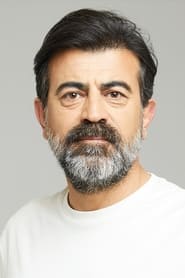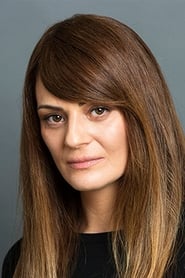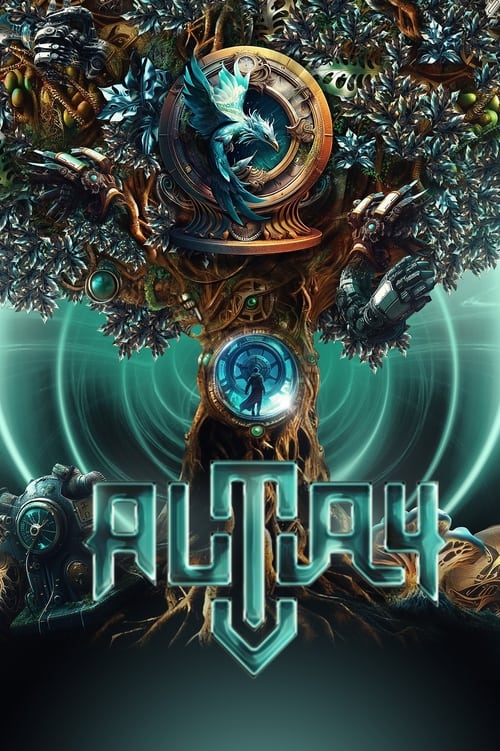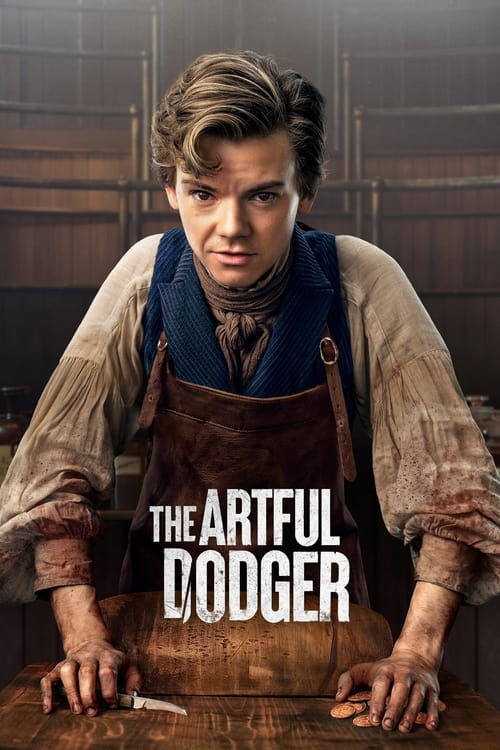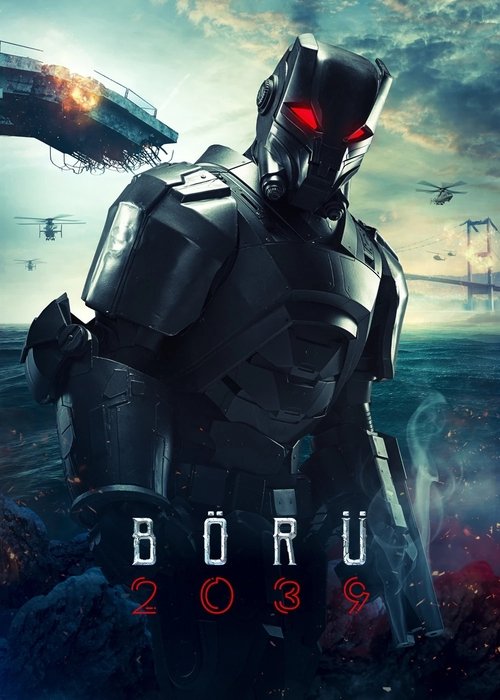
Ask Your Own Question
What is the plot?
The story begins with a flashback to a young man named Batuhan, who is training in martial arts. He is shown to be a skilled fighter, and his passion for justice is evident. The scene transitions to the present day, where Batuhan, now an adult, is living a double life as a successful businessman and a vigilante known as Akıncı. He is motivated by a desire to protect his city from crime and corruption, driven by the memory of his father, who was a police officer killed in the line of duty.
Batuhan's life takes a turn when he discovers a criminal organization led by a mysterious figure known as "The Master." This organization is involved in various illegal activities, including drug trafficking and arms dealing. Batuhan's investigation leads him to cross paths with a journalist named Zeynep, who is also looking into the same criminal activities. Their initial meeting is tense, as Zeynep is skeptical of Batuhan's intentions, but they soon realize they share a common goal.
As Batuhan delves deeper into the criminal underworld, he faces numerous challenges. He encounters a rival vigilante named Korkut, who believes that Batuhan's methods are too reckless. Their confrontations are intense, showcasing their differing philosophies on justice. Korkut warns Batuhan that his actions could have dire consequences, but Batuhan remains undeterred, fueled by his desire to avenge his father's death.
In a pivotal scene, Batuhan infiltrates a drug deal orchestrated by The Master. Disguised as a buyer, he gathers crucial information about the organization. The deal goes awry when law enforcement arrives, leading to a chaotic shootout. Batuhan showcases his combat skills, taking down several armed men while trying to escape. He narrowly avoids capture, but not without sustaining injuries that leave him vulnerable.
Meanwhile, Zeynep uncovers a lead that connects The Master to a high-ranking official in the government. She confronts Batuhan with this information, urging him to be cautious. However, Batuhan's determination to take down The Master blinds him to the potential dangers. He decides to confront the official directly, believing that exposing him will weaken The Master's influence.
The confrontation escalates when Batuhan and Zeynep are ambushed by The Master's men. A fierce battle ensues, with Batuhan fighting valiantly to protect Zeynep. They manage to escape, but not without casualties. This event deepens their bond, as Zeynep witnesses Batuhan's unwavering commitment to his cause.
As the season progresses, Batuhan's personal life begins to unravel. His relationship with his mother becomes strained as she worries about his safety. She is unaware of his vigilante activities and believes he is simply focused on his business. Batuhan struggles with the weight of his dual identity, feeling the pressure of living up to his father's legacy while also trying to maintain a semblance of normalcy.
In a climactic moment, Batuhan discovers the true identity of The Master, revealing that it is someone from his past. This revelation shakes him to his core, as he grapples with feelings of betrayal and anger. He realizes that to defeat The Master, he must confront his own demons and the painful memories associated with his father's death.
The season culminates in a final showdown between Batuhan and The Master. The confrontation takes place in an abandoned warehouse, where Batuhan faces off against The Master's henchmen before finally confronting the mastermind himself. The fight is brutal, showcasing Batuhan's skills and determination. In a moment of vulnerability, Batuhan hesitates, allowing The Master to taunt him about his father's death. This moment of doubt is quickly overcome as Batuhan channels his grief into strength, ultimately defeating The Master.
The season ends with Batuhan standing over The Master's defeated form, reflecting on the journey he has taken. He realizes that while he has avenged his father, the fight for justice is far from over. The final scene hints at new challenges ahead, as Batuhan prepares to continue his role as Akıncı, committed to protecting his city from the shadows.
What is the ending?
In the ending of "Akıncı," the protagonist, Fatih, faces a climactic confrontation with the main antagonist, who has been orchestrating chaos throughout the season. The battle tests Fatih's resolve and skills as he fights to protect his loved ones and uphold justice. Ultimately, he emerges victorious, but not without significant personal sacrifice. The season concludes with Fatih embracing his role as a protector, while the fates of other key characters are revealed, setting the stage for potential future conflicts.
As the final episodes unfold, the tension escalates. The scene opens with Fatih, donned in his Akıncı costume, standing atop a rooftop overlooking the city. The night is dark, illuminated only by the flickering lights of the streets below. He feels the weight of his responsibilities pressing down on him, a mix of determination and fear swirling within him. His internal monologue reveals his thoughts about the people he loves and the sacrifices he must make to keep them safe.
Cut to a dimly lit warehouse where the antagonist, a shadowy figure known for his ruthless tactics, gathers his henchmen. The atmosphere is thick with anticipation as they prepare for a final showdown. The camera pans across the faces of the henchmen, revealing their eagerness for chaos, contrasting sharply with Fatih's sense of duty.
The scene shifts back to Fatih, who receives a call from his ally, revealing the location of the antagonist's hideout. The urgency in his voice reflects his determination to end the threat once and for all. He gears up, strapping on his weapons, his face set in a grim expression of resolve. The audience can feel the adrenaline coursing through him as he prepares for the confrontation.
As Fatih arrives at the warehouse, the atmosphere is tense. He stealthily navigates through the shadows, his heart pounding in his chest. The sound of muffled voices and clinking metal fills the air, heightening the suspense. He takes a deep breath, reminding himself of the stakes involved. The camera captures the flicker of doubt in his eyes, but he pushes it aside, focusing on the mission ahead.
The confrontation begins with a fierce exchange of blows. Fatih's agility and combat skills are on full display as he takes on multiple henchmen. Each punch and kick is executed with precision, showcasing his training and determination. The choreography of the fight is intense, with close-ups of Fatih's strained expressions, revealing his physical and emotional struggle.
As the battle rages on, Fatih finally comes face to face with the antagonist. The tension is palpable as they exchange words, each trying to outmaneuver the other both physically and mentally. The antagonist taunts Fatih, revealing personal secrets that shake him to his core. Fatih's internal conflict is evident; he grapples with anger and the desire to protect his loved ones while seeking justice.
In a climactic moment, Fatih manages to outsmart the antagonist, using his surroundings to gain the upper hand. The fight culminates in a dramatic showdown, where Fatih, fueled by his love for his family and his commitment to justice, delivers a final blow that incapacitates the antagonist. The warehouse falls silent, the only sound being Fatih's heavy breathing as he stands over his defeated foe.
In the aftermath, Fatih is seen walking away from the warehouse, the weight of his victory heavy on his shoulders. He reflects on the cost of his actions, the sacrifices made, and the lives affected by the chaos. The camera captures his somber expression, hinting at the emotional toll the battle has taken on him.
The final scenes reveal the fates of the other main characters. Fatih's love interest, who has been supportive throughout his journey, stands waiting for him outside the warehouse. Their reunion is bittersweet, filled with unspoken words and shared understanding. They embrace, but the shadows of the past linger, suggesting that their journey is far from over.
Meanwhile, the antagonist's fate is left ambiguous, hinting at potential future conflicts. The season closes with Fatih looking out over the city, a sense of purpose ignited within him. He understands that his role as the Akıncı is not just about fighting; it's about protecting those he loves and standing against the darkness that threatens to engulf them.
The screen fades to black, leaving viewers with a sense of anticipation for what lies ahead in Fatih's journey as a protector and the challenges he will continue to face.
Is there a post-credit scene?
In "Akıncı," Season 1, there is no post-credit scene. The episodes conclude without any additional scenes or teasers after the credits roll. The focus remains on the main storyline and character development throughout the episodes, leaving no room for post-credit content. The narrative wraps up each episode with a clear resolution, maintaining the tension and intrigue for the next installment without the need for additional scenes.
What motivates the main character, Fatih, to become Akıncı?
Fatih, a young and idealistic man, is driven by a deep sense of justice and a desire to protect his loved ones. His personal experiences with crime and injustice fuel his transformation into Akıncı, as he seeks to fight against the corruption and threats facing his community.
How does Fatih's relationship with his family influence his actions as Akıncı?
Fatih's relationship with his family, particularly his father, who has a complicated past, plays a crucial role in shaping his identity. The pressure to uphold his family's honor and the desire to prove himself as a protector motivate him to embrace the Akıncı persona, often leading to internal conflict between his duties and familial loyalty.
What role does the antagonist, Selçuk, play in the story?
Selçuk serves as a formidable antagonist, representing the criminal underworld that Fatih must confront. His cunning and ruthless nature challenge Fatih's ideals, pushing him to his limits both physically and morally, as Selçuk's actions directly threaten the safety of Fatih's loved ones.
How does the character of Zeynep impact Fatih's journey as Akıncı?
Zeynep, Fatih's love interest, provides emotional support and serves as a moral compass throughout his journey. Her unwavering belief in his mission encourages Fatih to stay true to his values, even when faced with difficult choices, and her safety becomes a significant motivation for his actions as Akıncı.
What are the key challenges Fatih faces in his dual life as a regular citizen and as Akıncı?
Fatih struggles with balancing his responsibilities as a regular citizen, including his job and relationships, with the demands of being Akıncı. The secrecy required to maintain his superhero identity leads to tension in his personal life, as he often finds himself torn between his commitment to fighting crime and the need to be present for his family and friends.
Is this family friendly?
"Akıncı" is a Turkish action-adventure series that contains several elements that may not be suitable for younger audiences or sensitive viewers. Here are some potentially objectionable or upsetting aspects:
-
Violence: The show features action sequences that include hand-to-hand combat, weapon use, and physical confrontations. These scenes can be intense and may depict injuries or threats.
-
Crime and Corruption: The narrative involves themes of crime, betrayal, and corruption, which may be complex and unsettling for younger viewers.
-
Emotional Turmoil: Characters experience significant emotional struggles, including loss, betrayal, and moral dilemmas, which may be heavy for sensitive audiences.
-
Dark Themes: The storyline touches on darker themes such as revenge and justice, which may not be appropriate for children.
-
Mature Language: There may be instances of strong language or dialogue that could be considered inappropriate for younger viewers.
Overall, while "Akıncı" is an engaging series, its themes and content may require parental discretion for younger audiences.





